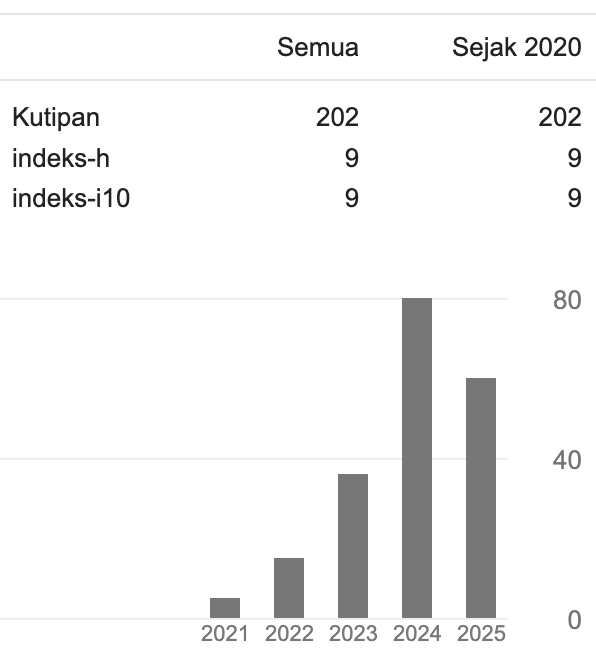From Mapalus to Cooperatives: Institutional Transformation of Financial Systems and Social Solidarity in the Coastal Fishing Communities of North Minahasa
Abstract
This study examines the role of fisher cooperatives in North Minahasa’s coastal communities as hybrid socio-economic institutions that integrate market logic with moral, cultural, and ecological values. It explores how four key dimensions, economic, social, cultural, and ecological, interact within cooperative practices, and how the local value of mapalus (Minahasan mutual cooperation) shapes collective ethics and institutional sustainability. Using a qualitative phenomenological approach, data were collected through participant observation, documentation, and in-depth interviews, then analyzed narratively to uncover meaning structures embedded in fishermen’s social actions. The analysis draws upon Islamic moral economy and institutional theory to interpret how values and norms guide cooperative behavior. Findings reveal that fisher cooperatives serve not only as economic entities providing capital, production inputs, and price stability but also as social spaces that cultivate solidarity, trust, and collective learning. The cultural foundation of mapalus reinforces moral accountability and shared welfare, while ecological practices demonstrate adaptive responses to climate change and marine resource conservation. The study concludes that these cooperatives represent a model of community-based Islamic institutional economics that unites efficiency, ethics, and ecological responsibility. Despite its limited scope, this research provides conceptual insights into how Islamic economic principles can be localized within socio-ecological contexts, offering a foundation for further comparative studies on cooperatives, informal finance, and Blue Economy policies in Indonesia.
References
Al Fairusy, M., & others. (2018). Palawik Dalam Pasungan Kemiskinan: Relasi Patron Klien dalam Industri Perikanan Kepulauan Banyak, Aceh Singkil. Aceh Anthropological Journal, 2(2), 92–113.
Arifandy, F. P., Norsain, N., & Firmansyah, I. D. (2020). Peran Koperasi Dalam Meningkatkan Perekonomian Masyarakat Nelayan: Perspektif Modal Kerja. Jurnal Akademi Akuntansi, 3(1), 118–132.
Attamimi, G. R., Kinseng, R. A., & Agusta, I. (2018). Kelas dan ketimpangan Struktural Masyarakat Nelayan di Kota Ambon. Sodality: Jurnal Sosiologi Pedesaan, 6(3), 228–236.
Avdukic, A., & Asutay, M. (2024). Testing the Development Impact of Islamic Banking: Islamic Moral Economy Approach to Development. Economic Systems, 101229.
BPS. (2020). Statistik Sumber Daya Kelautan Indonesia 2020. Jakarta.
Buscher, E., Mathews, D. L., Bryce, C., Bryce, K., Joseph, D., & Ban, N. C. (2021). Differences and Similarities Between Indigenous and Conventional Marine Conservation Planning: The Case of the Songhees Nation, Canada. Marine Policy, 129, 104520.
Chapra, M. U., Khan, S., & Al Shaikh-Ali, A. (2008). The Islamic Vision of Development in the Light of Maqasid al-Shari’ah (Occasional Papers Series 15). International Institute of Islamic Thought (IIIT).
Folke, C. (2016). Resilience (republished). Ecology and Society, 21(4).
Fonseca, C. (2007). The Interpretation of Cultures: Selected Essays. Cadernos de Campo (São Paulo-1991), 16(16), 281–286.
Granovetter, M. (1985). Economic Action and Social Structure: The Problem of Embeddedness. American Journal of Sociology, 91(3), 481–510.
Hamidsyukrie, Z. M., Utomo, J., & others. (2025). Tradisi Lokal dalam Memperkuat Solidaritas Sosisal di Masyarakat Pesisir. SOCED SASAMBO: Journal of Social Education Sasambo, 3(03), 54–59.
Indonesia, P. P. Peraturan Pemerintah (PP) Nomor 11 Tahun 2023 tentang Penangkapan Ikan Terukur, Pub. L. No. 11 Tahun 2023 (2023). Indonesia.
IPCC. (2022). Climate Change 2022: Impacts, Adaptation, and Vulnerability.
Iskandar, M. F., Sundoro, A., Dirgantoro, B., Sari, K. A., & Rahayu, D. (2023). Peran koperasi perikanan KUD Mina Samudera dalam pengembangan usaha manajemen ekonomi produktif masyarakat pesisir Banten. Jurnal Ekonomi, Bisnis Dan Humaniora, 2(2).
Kahf, M. (2019). The Islamic Economy: Analytical Perspectives on the Moral Foundations. Journal of Islamic Economic Studies, 27(1).
Long, N. (2003). Development Sociology: Actor Perspectives. Routledge.
Miles, M. B., Huberman, A. M., & Saldana, J. (2014). Qualitative data analysis: A methods sourcebook. SAGE Publications. CA: Thousand Oaks.
Mushabe, S. G. (2024). The Role of Farming Cooperatives in Fostering Resilient Peacebuilding Society.
Nurdiana, N., Muin, R., & Wahab, A. (2025). Fundamental Principles of Islamic Economic System: Justice, Equity, and Moral Conduct. Formosa Journal of Multidisciplinary Research, 4(6), 2627–2646.
Nuris, N. D. (2024). Hubungan Patron-Klien dalam Membentuk Kemiskinan Nelayan. INNOVATIVE: Journal Of Social Science Research, 4(4), 6849–6855.
Pryanka, A. (2018). Guru besar IPB Sampaikan Penyebab Nelayan Indonesia Miskin. Ekonomi Republika. Retrieved from https://ekonomi.republika.co.id/berita/pi7qdl383/guru-besar-ipb-sampaikan-penyebab-nelayan-indonesia-miskin
Putnam, R. D. (2000). Bowling alone: The collapse and revival of American community. Simon and schuster.
Scott, J. C. (1977). The Moral Economy of the Peasant: Rebellion and Subsistence in Southeast Asia. Yale University Press.
Wahyudi, A; Ridwan, A. (2022). Koperasi Nelayan dan Konservasi Laut: Studi Etnografi di Pesisir Selatan Jawa. Jurnal Kelautan Tropis, 15(3), 145–161.
Yilmaz, I. (2024). Exploring the foundations of Islamic moral economy: a return to substantive morality. International Journal of Ethics and Systems.
Copyright (c) 2025 Kunuz: Journal of Islamic Banking and Finance

This work is licensed under a Creative Commons Attribution 4.0 International License.













